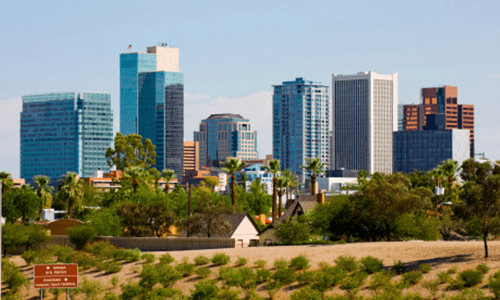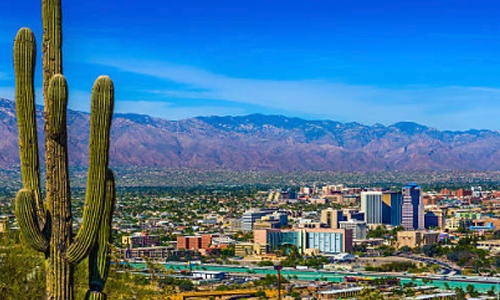
Phoenix, AZ
Phoenix is currently home to four Fortune 500 companies: electronics corporation Avnet, mining company Freeport-McMoRan, retailer PetSmart and waste hauler Republic Services. Honeywell’s Aerospace division is headquartered in Phoenix, and the valley hosts many of their avionics and mechanical facilities. Intel has one of their largest sites in the area, the second largest Intel location in the country. American Express hosts their financial transactions, customer information, and their entire website in Phoenix. The city is also home to: the headquarters of U-HAUL International, a rental and moving supply company; Best Western, the world’s largest family of hotels; Apollo Group, parent of the University of Phoenix; and utility company Pinnacle West. Choice Hotels International has its IT division and operations support center in the North Phoenix area. US Airways, now merged with American Airlines has a strong presence in Phoenix, with the corporate headquarters located in the city prior to the merger. US Air/American Airlines is the largest carrier at Sky Harbor International Airport in Phoenix. Mesa Air Group, a regional airline group, is headquartered in Phoenix.






